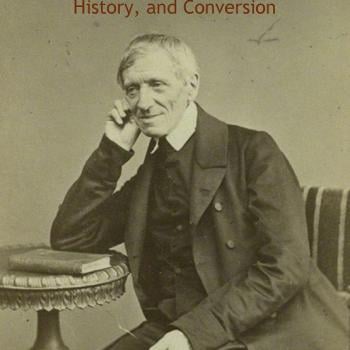It's difficult to avoid the impression that this is another expression of liberal academics' antipathy toward Christianity, as though Christianity itself is discriminatory and oppressive and deserving of exclusion from the public sphere. Around the country there have been numerous cases of public colleges or universities attempting to deny normal student-group status and resources to Christian groups that require their members or leaders to consent to a statement of faith that includes traditional Christian positions on sexuality. Yet we could certainly imagine other groups that are even more exclusionary or discriminatory. Why are Christian groups singled out?
[Pause.]
Or is this asking you to speculate outside your comfort zone?
[Laughs.] Well, I would ask Hastings that question. But I don't think it's any secret that traditional Christianity is regarded by many as inimical to the progressive project. And the truth is that until the sexual orientation issue arose, even Hastings didn't really care. Yet the important point is that the Christian Legal Society theologically does not believe in discrimination on the basis of orientation, but only on the basis of belief and conduct: that is, whether you believe that sex is properly reserved for married couples. They ask their members to subscribe to the traditional Christian teaching that sex is reserved for marriage between a man and a woman.
Our position, however, has absolutely nothing to do with what one thinks about same-sex conduct or whether sexual orientation should be protected as a matter of law. Our case would be identical in its legal framework if I were representing a religious student group that advocated same-sex marriage and was excluding leaders and voters who refused to accept the legitimacy of same-sex marriage. Our position would be exactlythe same if we were representing a gay rights group that had been excluded from campus on the grounds that it didn't allow homophobic evangelicals to become voting members and officers. The First Amendment position here is completely independent of what happened to be this group's own beliefs about sexual morality.
I hope the Supreme Court sees that. A Civil Rights organization could be just as threatened under different social circumstances. It was not long ago that the ACLU was kept off of campuses. A fledgling chapter of the NAACP would have just as much reason to confine its officers and voters to people who share their mission. This is about protecting the freedom of any group to be able to form around shared beliefs.
It's also hard to avoid what seem to be the broader philosophical implications of this case.
There are broader philosophical implications. I'm a little hesitant to say what I think they are, but they're pretty plain on the surface of the case.
One philosophical question at issue seems to be: Is it always wrong to differentiate between persons? Or are there proper and improper grounds of "discrimination"? Are we reaching a point where we are prohibited from making any meaningful differentiation of persons, or are we still permitted to form groups centered on shared beliefs?
The problem is that Hastings and its supporters seem to believe that any time you slap the label "discrimination" onto something, it necessarily entitles the state to try to suppress it -- even when it is a religious organization "discriminating" on the basis of religion.
There is absolutely nothing invidious or immoral or improper or unneighborly or hostile or anything wrong whatsoever about religious organizations insisting that they be controlled by their own people. Being able to gather together with Catholics in one church and Baptists in their own organization, or Jews in a Talmud study, is very fundamental to the right of free exercise of religion. The state has zero legitimate interest in discouraging that. It's none of the state's business. That's what separation of church and state means.
Given the importance and the broad implications of the case, has it received sufficient attention in the media? When it was argued before the Supreme Court, there were several prominent editorials, but it dropped pretty quickly out of view. Are the media missing the boat here?
The case would be enormously important in a bad way if Hastings were to prevail. For CLS to prevail would simply be to shore up Constitutional protections that the court has been providing for the last thirty or forty years. My guess is that if CLS wins, all of the folks on the other side of the case will say, "Well, of course. This is a very small case." Yet if Hastings wins, and especially if they win on the theory that the government can withhold "benefits" to any group it disapproves of, the world will be a very different place the day after.





